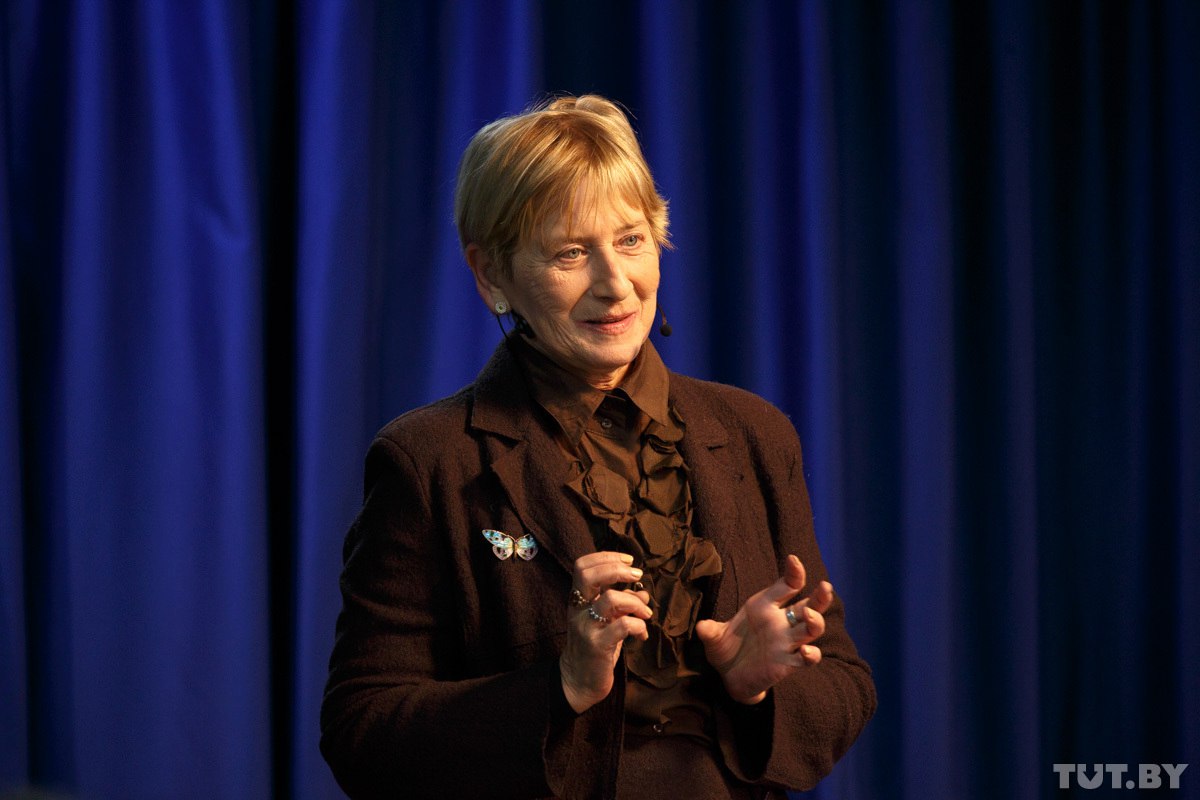In Russia today, the state by celebrating some of the most odious figures in the Russian past is promoting “the deification of evil and cruelty,” Olga Sedakova says. And such celebration of an evil past together with a desire to return to it is one of the things Vladimir Putin and the far right in the West share, according to Vitaly Portnikov.
The distinguished Russian Orthodox poetess was the first guest of Belarusian Nobelist Svetlana Aleksievich at her new intellectual club in Minsk on December 7. Sedakova devoted her presentation to “’Evil’ and Attitudes toward It in the Russian and European Traditions.”
In short, she continues, “someone did something in order that people have suffered.” But Russia stands out not so much because of the amount of suffering its people have undergone but because Western countries do not “associate themselves with the theme of suffering.” In Russia, however, this has “always” been the case.
Adding to this problem, Sedakova argues, is that Russians have never developed a good attitude to themselves as a group. They have not developed an ethics of “humanitarian solidarity” which promotes respect for others. Instead, they have developed “an ethic of war, and there is no understanding of peace.”
Joseph Brodsky translated the expression “’there is no bad without good’ as ‘there is no evil within which there isn’t at least a portion of good.’” That is “a characteristic Russian understanding of things.” Russians typically do not say that “inside evil there is something good.” Instead, they insist that some people do evil so that something good will come of it.
That has the effect of blocking criticism of evil and reflects the fact that while in European culture, there has always been “a precise distinction” between good and evil,” in Russian culture, there has been an insistence that the two are intertwined in ways that make pulling them apart impossible.
One manifestation of that – and Sedakova gives several – is the tendency of Russians to speak “’on the one hand, but on the other hand.’”
Another is the tendency to raise monuments to odious figures like Stalin and Ivan the Terrible. That could happen only in Russia, Sedakova says; and reflects “the deification of evil and cruelty” and their elevation over good and use to suppress any criticism of the state no matter how horrific its acts.
Meanwhile, Ukrainian commentator Vitaly Portnikov suggests, in the course of an analysis of the far right in the West that it shares with the Putin regime a desire to insist that its predecessors did nothing wrong in the past and that the past is a place to which its supporters want to return.
To the extent that Sedakova and Portnikov are right, it may be fair to say that Putin’s ‘Russian world’ truly has achieved a victory over a significant portion of the population in Western societies. But it is a victory that promises not good but a return of evils in a new and perhaps “hybrid” and hyperbolic form.
Related:
- Putin’s Russia for export at odds with his Russia for Russians, Shiropayev says
- Russians back secession of California from US, Russian-linked leader of Calexit says
- If Russia isn’t stripped of 2018 World Cup, Putin will tighten the screws on Russians as he did before Sochi
- Russia’s constitution must declare ethnic Russians country’s only ‘state-forming people,’ Korovin says
- Russians now killing doctors as aggressiveness spreads throughout population, commentator says

